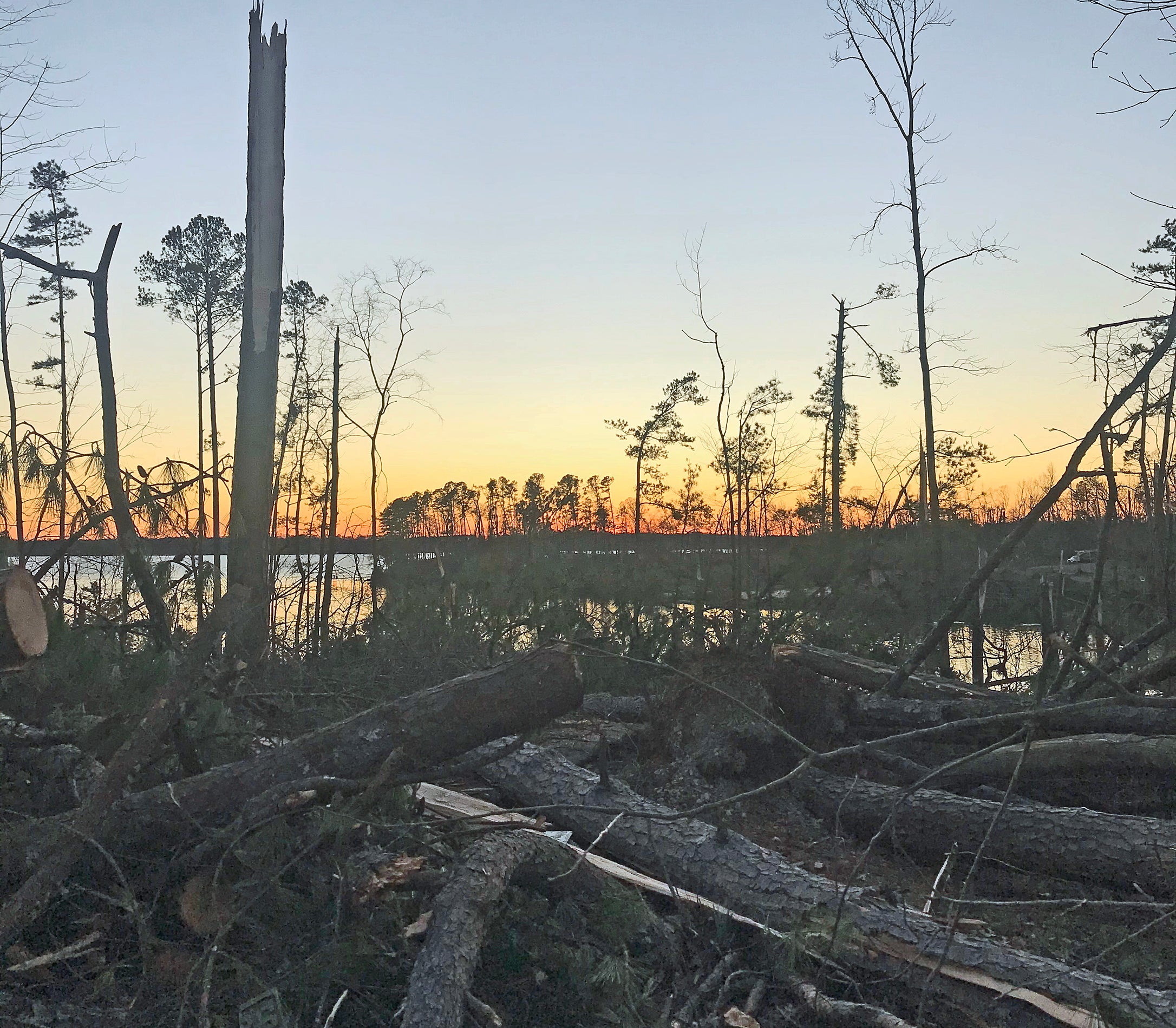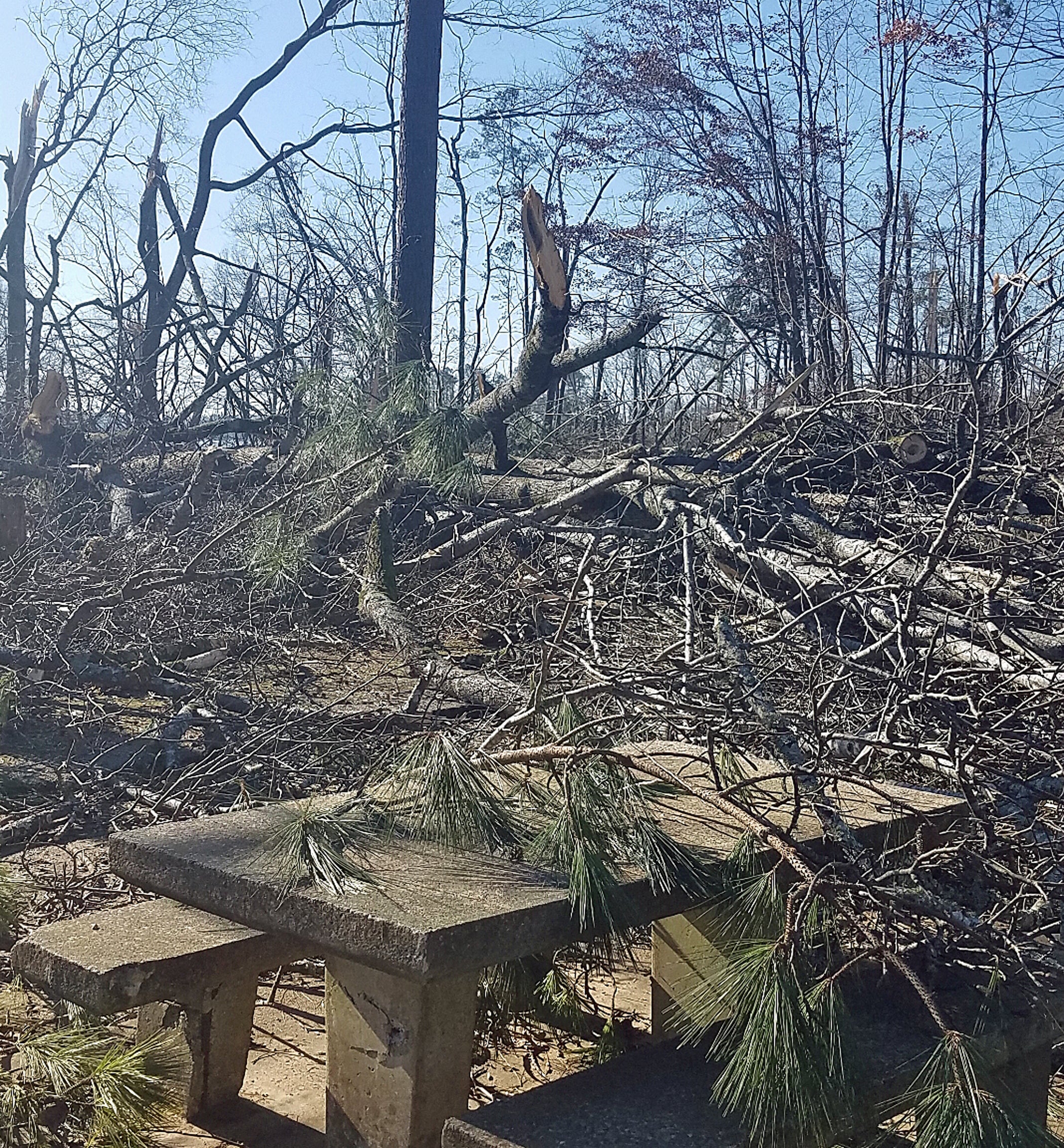By DAVID RAINER, Alabama Department of Conservation and Natural Resources
Thankfully, with a few exceptions, Alabama State Parks remain open during the COVID-19 restrictions.
And as diligent as always, our park rangers are on duty to deal with any situation that might arise with everything from a welcoming wave and helpful hand to rescuing park visitors in peril.
That peril was particularly apparent last December when a line of storms started moving through north Alabama.
Joe Wheeler State Park Ranger Ryan Robertson was on patrol on December 16, 2019, while Ranger David Barr had the day off, or so he thought.
“That afternoon, we had some pretty volatile weather,” Barr said. “Ryan was running duty, and I stopped him at the boat ramp and told him I would be home if it got bad.”
It got bad at the 2,550-acre park on the Tennessee River near Rogersville. When a tornado warning was issued a little after 5 p.m., Barr donned his uniform and headed into the park to help Robertson warn the patrons and park volunteers of the impending storm.
Fortunately, with the Christmas season in full swing, the park was not full of campers or visitors.
“Ryan already had people evacuated from the campground,” Barr said. “We only had seven campers and four of those were volunteers. If we have a lot of people, we put some in the bathhouses and some at the campground store. Ryan took some of them to the lodge. He stayed with them.
“I was at the campground store with two ladies and two kids and a Pyrenees dog. I usually get out and ramble during something like this, but something told me not to do that. I stayed at the store. My son was with me, and he was watching the storm on the weather radar.”
Barr’s son told him the storm was about to hit, and Barr sent the visitors into one bathroom while he and his son got in the other.
The power went out, and a few minutes later it became apparent that they were in the tornado’s path.
“The store has metal doors on each side,” Barr said. “Those doors started flapping. I didn’t stick my head out to see, but it sounded like those doors were opening all the way and closing. The wind was howling and whistling. That lasted for three or four minutes and then it was quiet.”
While all campers, volunteers and park personnel escaped injury during the storm, the campground did not fare as well.
“When I was sure it had blown over, I thought we had escaped the worst of it until I went outside and got in my truck,” Barr said. When the lights came on, I could see big pine trees down. I tried to go up the hill to my house, but the road was blocked by trees.”
Barr walked the rest of the way to his house, which was unscathed, although numerous trees were down in the yard. Back in the campground, Barr discovered that the A section did not have much damage.
“But the B section was total destruction,” he said. “The bathhouse was destroyed. The meeting pavilion was caved in by trees falling on it.”
By that time, Barr was joined by Robertson and Park District Supervisor Chad Davis as well as part-time employee Morris Barnes, who has since become a full-time ranger at Monte Sano State Park.
Barnes hopped onto a backhoe and all hands started clearing downed trees out of the roadways until they realized live power lines were down in the park and decided to wait until daylight to resume their work.
The next morning, Barr discovered he had a view of the Tennessee River that he never expected or wanted.
“I’ve been a ranger and campground supervisor here for over 30 years,” he said. “This is my home. To see my life’s work blown away was devastating.
“We got strike teams in from other parks, cut our way through the different sections to assess the damage. I can’t really describe it. A section survived. Three-quarters of B section was gone. C section was completely wiped out.”
Barr, who was recently promoted to assistant superintendent at Wheeler, said out of 116 camping sites only 60 remained usable. Two bathhouses were destroyed. One large pavilion and two smaller pavilions were destroyed. Beautiful, tall pine trees were strewn throughout the campground.
“From my house, you can see forever,” he said. “You can see the river from my backyard, which you used to could never see. I can see all the way across the river. I miss the trees.”








